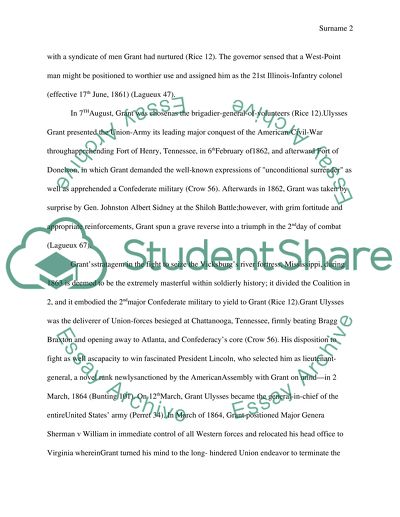Cite this document
(“Ulysses S. Grant Research Paper Example | Topics and Well Written Essays - 1750 words”, n.d.)
Retrieved from https://studentshare.org/history/1479913-ulysses-s-grant
Retrieved from https://studentshare.org/history/1479913-ulysses-s-grant
(Ulysses S. Grant Research Paper Example | Topics and Well Written Essays - 1750 Words)
https://studentshare.org/history/1479913-ulysses-s-grant.
https://studentshare.org/history/1479913-ulysses-s-grant.
“Ulysses S. Grant Research Paper Example | Topics and Well Written Essays - 1750 Words”, n.d. https://studentshare.org/history/1479913-ulysses-s-grant.


